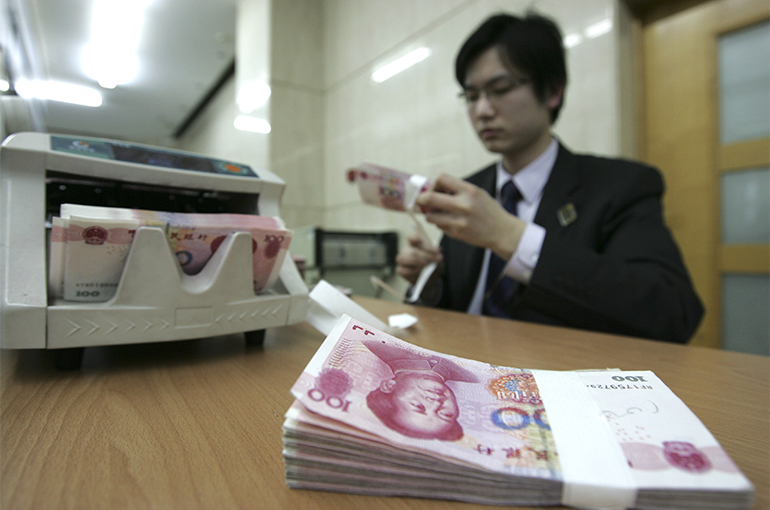 Chinese Yuan Bounces Back Against US Dollar
Chinese Yuan Bounces Back Against US Dollar(Yicai) March 26 -- The onshore Chinese yuan strengthened back against the US dollar, as the central parity rate between the two currencies returned to below 7.1 after a sharp decline.
The spot exchange rate of the onshore Chinese yuan versus the US dollar was 7.2132 as of 6.50 p.m. Beijing time yesterday, even though the US Dollar Index rose to above 140 yesterday.
The central parity rate of the onshore Chinese yuan against the greenback fell to 7.0996 yesterday from 7.1004 on March 22, when it was set above the 7.1 mark for the first time since March 8.
The offshore Chinese yuan also experienced a similar trend. After plunging to an around four-month low on March 22, the redback bounced back nearly 150 basis points to 7.2537 as of 6.50 p.m. Beijing time yesterday.
Some overseas traders believed that China’s central bank pushed the central parity rate up on March 22 to signal that it started to tolerate the depreciation of the Chinese yuan, while others thought it was just an accident or stress test. It later turned out to be a test.
The People’s Bank of China cannot be happy with the rapid depreciation of the Chinese yuan because it may exacerbate capital outflows, Ulrich Leuchtman, head of commodities and foreign exchange research at German lender Commerzbank, told Yicai. The redback’s pricing yesterday morning was enough to end the panic, changing its weakness immediately, Leuchtman added.
Despite the greenback is not expected to weaken in the first half of the year, China will not tolerate a one-off devaluation of the yuan but more likely a gradual one, institutions believe. The fluctuation range of the exchange rate of the Chinese yuan against the US dollar will remain between 7 and 7.3, they predicted.
As the exchange rate of the Chinese yuan against the US dollar has long been an anchor for regional currencies, other related currencies, such as the Malaysian ringgit and the South Korean won, will also be affected for a certain period, Zhang Meng, macro and foreign exchange strategist at UK bank Barclays, told Yicai.
Despite some pressures on the yuan, it is unlikely to have a one-off devaluation, as China’s central bank is still able and willing to maintain the overall stability of the exchange rate, she added.
The Federal Reserve and the European Central Bank may start cutting interest rates in June, and most Asian central banks may follow suit in the third quarter, Standard Chartered predicted. However, if the Fed delays its rate-cutting schedule, the others may also postpone their moves.
Editor: Futura Costaglione